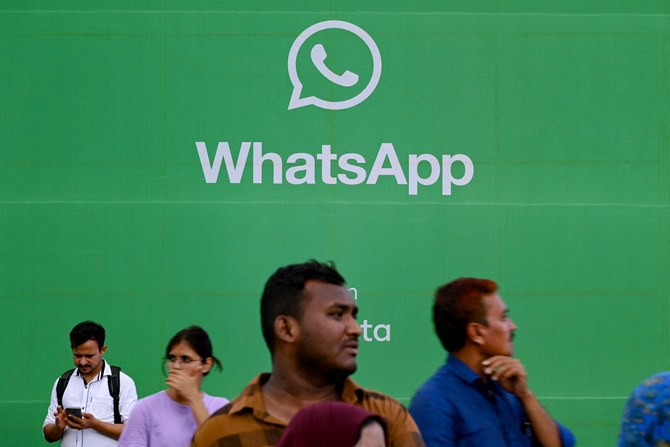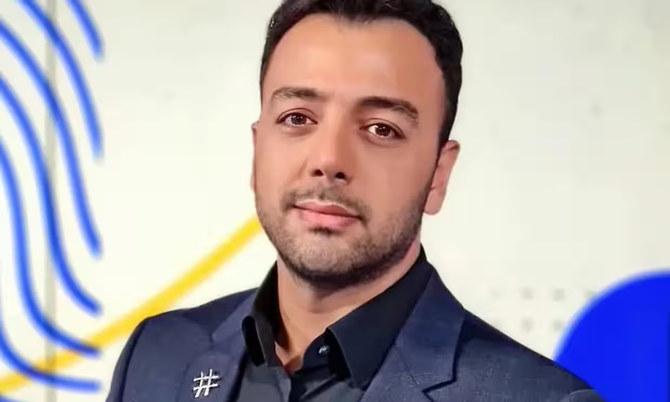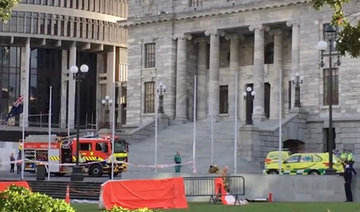SAN FRANCISCO: witter on Thursday said it had shut down nearly 3,500 accounts that were posting pro-government propaganda in six countries, including China and Russia.
The vast majority of the accounts were part of a network that “amplified Chinese Communist Party narratives related to the treatment of the Uyghur population in Xinjiang,” Twitter said in a statement.
China faces accusations of grave human rights violations against the ethnic minority in the northwestern province, where experts have estimated that more than one million people are incarcerated in camps.
Aside from 2,048 accounts linked to the pro-Beijing campaign, Twitter also shut down 112 accounts connected to a company named Changyu Culture, linked to Xinjiang’s regional government.
The move came a day after Facebook’s parent company Meta said it had shut down more than 500 accounts that were part of a China-linked influence campaign relating to Covid-19.
The accounts promoted claims from a fictitious Swiss biologist, Wilson Edwards, that the United States was interfering in efforts to identify the origins of the coronavirus.
Chinese state media had widely quoted “Edwards” in July, although several newspapers deleted references to him after the Swiss embassy in Beijing said there was no trace of him.
Both Twitter and Facebook are banned in China, but Beijing frequently uses both US social networks to promote its positions on the international stage.
Beyond China, Twitter also shuttered 16 accounts linked to the Internet Research Agency, a Russian company labeled a “troll farm” by critics, which runs pro-government online influence campaigns.
“The operation relied on a mix of inauthentic and real accounts to introduce a pro-Russia viewpoint into Central African political discourse,” Twitter said.
Russia has wielded increasing influence in the Central African Republic since 2018 when it sent a large contingent of “instructors” to train the army.
“We also removed a network of 50 accounts that attacked the civilian Libyan government and actors that support it, while voicing significant support for Russia’s geopolitical position in Libya and Syria,” Twitter added.
The banned accounts also include 276 that shared pro-government content in Mexico, and “277 Venezuelan accounts that amplified accounts, hashtags and topics in support of the government and its official narratives.”
In Africa, 268 accounts were shut down for targeting civil rights group FichuaTanzania, along with 418 that “engaged in coordinated inauthentic activity” in Uganda to promote President Yoweri Museveni.
“In most instances, accounts were suspended for various violations of our platform manipulation and spam policies,” Twitter said.
Like other social media giants, Twitter has faced criticism over failures to tackle misinformation on its platform as well as racist, sexist and homophobic posts, among other forms of hate speech.
It also announced Thursday that it will launch a Twitter Moderation Research Consortium early next year, bringing together “experts from across academia, civil society, NGOs and journalism” to study possible improvements.
Twitter said it would not seek to influence the consortium’s findings.
Twitter shuts propaganda accounts in six countries
https://arab.news/m96qp
Twitter shuts propaganda accounts in six countries

- Twitter shuts down almost 3500 accounts posting pro-government propaganda in six different countries, including Russia and China
Man who set himself on fire outside Trump trial dies of injuries, police say

- Some officers and bystanders rushed to the aid of the man
- The man, who police said recently traveled from Florida to New York, had not breached any security checkpoints to access the park
NEW YORK: A man who doused himself in an accelerant and set himself on fire outside the courthouse where former President Donald Trump is on trial has died, police said.
The New York City Police Department told The Associated Press early Saturday that the man was declared dead by staff at an area hospital.
The man was in Collect Pond Park around 1:30 p.m. Friday when he took out pamphlets espousing conspiracy theories, tossed them around, then doused himself in an accelerant and set himself on fire, officials and witnesses said.
A large number of police officers were nearby when it happened. Some officers and bystanders rushed to the aid of the man, who was hospitalized in critical condition at the time.
The man, who police said recently traveled from Florida to New York, had not breached any security checkpoints to access the park.
The park outside the courthouse has been a gathering spot for protesters, journalists and gawkers throughout Trump’s trial, which began with jury selection Monday.
Through Friday, the streets and sidewalks in the area around the courthouse were generally wide open and crowds have been small and largely orderly.
Authorities said they were also reviewing the security protocols, including whether to restrict access to the park. The side street where Trump enters and leaves the building is off limits.
“We may have to shut this area down,” New York City Police Department Deputy Commissioner Kaz Daughtry said at a news conference outside the courthouse Friday, adding that officials would discuss the security plan soon.
Russian war correspondent for Izvestia killed in Ukraine

- Izvestia said Semyon Eremin, 42, died of wounds from a drone attack in Zaporizhzhia region
- Eremin had reported for the Russian daily from hottest battles in Ukraine during the 25-month-old war
Semyon Eremin, a war correspondent for the Russian daily Izvestia, was killed on Friday in a drone attack in southeastern Ukraine, the daily said.
Izvestia said Eremin, 42, died of wounds suffered when a drone made a second pass over the area where he was reporting in Zaporizhzhia region.
Izvestia said Eremin had sent reports from many of the hottest battles in Ukraine’s eastern regions during the 25-month-old war, including Mariupol, besieged by Russian troops for nearly three months in 2022.
He had also reported from Maryinka and Vuhledar, towns at the center of many months of heavy fighting.
WhatsApp being used to target Palestinians through Israel’s Lavender AI system

- Targets’ selection based on membership to some WhatsApp groups, new report reveals
- Accusation raises questions about app’s privacy and encryption claims
LONDON: WhatsApp is allegedly being used to target Palestinians through Israel’s contentious artificial intelligence system, Lavender, which has been linked to the deaths of Palestinian civilians in Gaza, recent reports have revealed.
Earlier this month, Israeli-Palestinian publication +972 Magazine and Hebrew-language outlet Local Call published a report by journalist Yuval Abraham, exposing the Israeli army’s use of an AI system capable of identifying targets associated with Hamas or Palestinian Islamic Jihad.
This revelation, corroborated by six Israeli intelligence officers involved in the project, has sparked international outrage, as it suggested Lavender has been used by the military to target and eliminate suspected militants, often resulting in civilian casualties.
In a recent blog post, software engineer and activist Paul Biggar highlighted Lavender’s reliance on WhatsApp.
He pointed out how membership in a WhatsApp group containing a suspected militant can influence Lavender’s identification process, highlighting the pivotal role messaging platforms play in supporting AI targeting systems like Lavender.
“A little-discussed detail in the Lavender AI article is that Israel is killing people based on being in the same WhatsApp group as a suspected militant,” Bigger wrote. “There’s a lot wrong with this.”
He explained that users often find themselves in groups with strangers or acquaintances.
A lot of difficult questions for Meta before that trust can be rebuilt, and I don't honestly believe that Meta can or will answer them pic.twitter.com/vaeLbg9hx3
— Paul Biggar (@paulbiggar) April 16, 2024
Biggar also suggested that WhatsApp’s parent company, Meta, may be complicit, whether knowingly or unknowingly, in these operations.
He accused Meta of potentially violating international humanitarian law and its own commitments to human rights, raising questions about the privacy and encryption claims of WhatsApp’s messaging service.
The revelation is just the latest of Meta’s perceived attempts to silence pro-Palestinian voices.
Since before the beginning of the conflict, the Menlo Park giant has faced accusations of double standards favoring Israel.
In February, the Guardian revealed that Meta was considering the expansion of its hate speech policy to the term “Zionist.”
More recently, Meta quietly introduced a new feature on Instagram that automatically limits users’ exposure to what it deems “political” content, a decision criticized by experts as a means of systematically censoring pro-Palestinian content.
Responding to requests for comment, a WhatsApp spokesperson said that the company could not verify the accuracy of the report but assured that “WhatsApp has no backdoors and does not provide bulk information to any government.”
Eastern European mercenaries suspected of attacking Iranian journalist Pouria Zeraati

- UK security services believe criminal proxies with links to Tehran carried out London knife attack
LONDON: Police said on Friday that a group of Eastern European mercenaries is suspected to have carried out the knife attack on Iranian journalist Pouria Zeraati in late March.
Zeraati was stabbed repeatedly by three men in an attack outside his south London home.
The Iran International presenter lost a significant amount of blood and was hospitalized for several days. He has since returned to work, but is now living in a secure location.
Iran International and its staff have faced repeated threats, believed to be linked to the Iranian regime, which designated the broadcaster as a terrorist organization for its coverage of the 2022 protests.
Iran’s charge d’affaires, Seyed Mehdi Hosseini Matin, denied any government involvement in the attack on Zeraati.
Investigators revealed that the suspects fled the UK immediately after the incident, with reports suggesting they traveled to Heathrow Airport before boarding commercial flights to different destinations.
Police are pursuing leads in Albania as part of their investigation.
Counterterrorism units and Britain’s security services leading the inquiry believe that the attack is another instance of the Iranian regime employing criminal proxies to target its critics on foreign soil.
This method allows Tehran to maintain plausible deniability and avoids raising suspicions when suspects enter the country.
Zeraati was attacked on March 29 as he left his home home to travel to work. His weekly show serves as a source of impartial and uncensored news for many Iranians at home and abroad.
In an interview with BBC Radio 4’s “Today” program this week, Zeraati said that while he is physically “much better,” mental recovery from the assault “will take time.”
Court orders release of prominent Palestinian professor suspected of incitement

- Nadera Shalhoub-Kevorkian was under investigation after questioning Hamas atrocities, criticizing Israel
- Insufficient justification for arrest, says court
- Detention part of a broader campaign, says lawyer
LONDON: The prominent Hebrew University of Jerusalem professor, Nadera Shalhoub-Kevorkian, was released on Friday after a court order rejected police findings.
The criminologist and law professor was arrested the previous day on suspicion of incitement. She had been under investigation for remarks regarding the Oct. 7 attacks by Hamas and for saying Israelis were committing “genocidal crimes” in the Gaza Strip and should fear the consequences.
On Friday, the court dismissed a police request to extend her remand, citing insufficient justification for the arrest, according to Hebrew media reports.
Protesters gathered outside the courthouse to demonstrate against Shalhoub-Kevorkian’s arrest.
Israeli Channel 12, which first reported the news, did not specify where Shalhoub was arrested but her lawyer later confirmed she was apprehended at her home in the Armenian Quarter of Jerusalem.
“She’s not been in good health recently and was arrested in her home,” Alaa Mahajna said. “Police searched the house and seized her computer and cellphone, [Palestinian] poetry books and work-related papers.”
Mahajna described Shalhoub-Kevorkian’s arrest as part of a broader campaign against her, which has included numerous threats to her life and of violence.
The professor was suspended by her university last month after calling for the abolition of Zionism and suggesting that accounts of sexual assault during the Hamas-led attacks on Israel were fabricated.
The suspension was initially criticized by the university community as a blow to academic freedom in Israel. However, the decision was later reversed following an apology from Shalhoub-Kevorkian and an admission that sexual assaults took place.
Since hostilities began last year, numerous dissenting voices in Israel have faced arrest for expressing solidarity with victims of the bombardment in Gaza.
In October, well-known ultra-Orthodox Israeli journalist Israel Frey was forced into hiding following a violent attack on his home.
Bayan Khateeb, a student at the Technion-Israel Institute of Technology, was arrested last year for incitement after posting an Instagram story showing the preparation of a popular spicy egg dish with the caption: “We will soon be eating the victory shakshuka.”






















